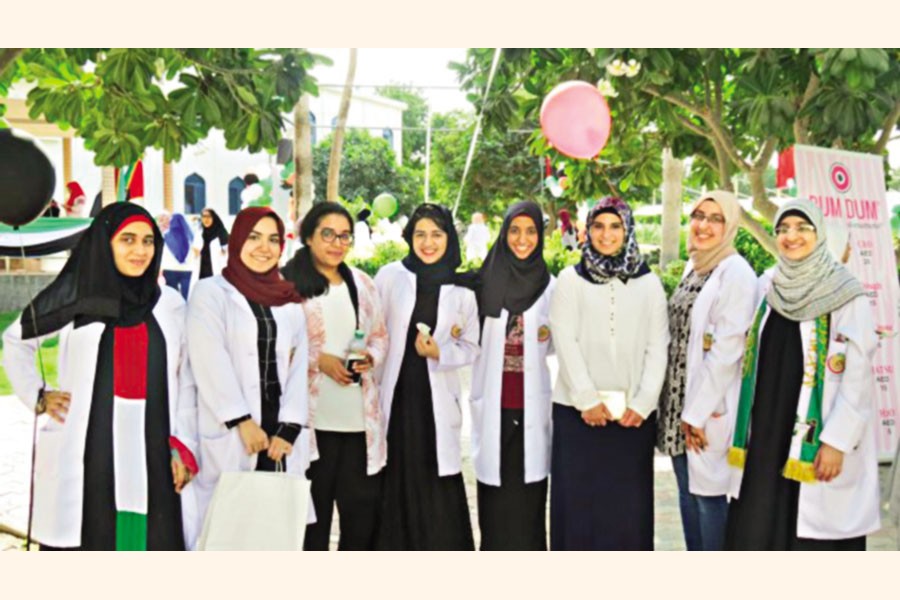Professional examinations that are held upon the completion of each year of medical school, the only exception being the first professional exam which is held at the end of the second year, are unquestionably the most nerve-wracking events in any medical student's life. Despite the ongoing pandemic, the first three professional exams have already been conducted offline this year and the final one is yet to be held.
How a person studies before the exam varies according to their capability of processing information, level of concentration, pace of reading and mental health. So one's study techniques may not work for another person. In any case, following a few fundamental smart strategies can help a student get equipped with satisfactory preparation which can help them to do well in the exam.
"One should plan to keep enough time in hand which would be adequate to complete the whole syllabus and afterwards, revise it at least once in order to decrease chances of forgetting answers during the exam," said Samiha Zaman Disha, a fifth-year student at Dhaka Medical College. Typically in ordinary circumstances, a one-month preparatory leave is allocated for the students to get well prepared for the professional exam. The topics which seem to be difficult or one perceives themselves to be weak in, need to be attempted first keeping in mind they have enough time to cover all the materials that may appear in the exam. Rather than making a routine for a long period, breaking up the routine into smaller bits i.e. for a week tends to be easier to follow and prevents burnout. One should definitely decide how much time one wants to give to each subject depending on the difficulty of the subject and one's proficiency in it.
For example, since anatomy is usually deemed as the toughest one to master for the first professional exam, more time should be kept for this one compared to the other two i.e. Biochemistry and Physiology. Making notes and flashcards consisting of things that can be easily forgotten like blood supply or nerve supply of different organs, classification of drugs, tumours in different organs may come in handy while reviewing them right before the exam.
Studying at a stretch for a long time without any refreshments can become very exhausting. To avoid that, one can keep aside some time daily, at least about 30 minutes for doing things they would enjoy doing; for example, talking to friends and family. "I try to keep myself calm usually by praying, meditating or taking a walk during study breaks," is what Shahbaz Rahul, a final professional examinee from Shaheed Suhrawardy Medical College had to say when asked about how he keeps his mental health in check during those stressful times.
Pulling all-nighters might sound like a good idea, however, a restful night's sleep is needed for internalisation of all the learned material. Limiting caffeine intake to one or two cups a day can help in reducing anxiety and ensure a decent night's sleep since avoidance of caffeine altogether seems unimaginable to most students.
The groundwork for viva is somewhat not quite the same as written tests as certain points are solely significant for viva. Listening to class lectures helps a lot in grasping the really important things to be asked in the viva. Yet, it is not something to be stressed over in the event that someone has already missed the classes as there is always a helpful topper in class who takes down notes impeccably; hopefully who is generous enough to lend their notes to other people. Having a sound knowledge about the subject and talking out concepts with other classmates, also practising speaking in front of them or even in front of a mirror can help a lot in building up one's confidence which can help them to avoid getting a thought- block during the viva.
The night before the exam is quite a crucial time for an examinee. Nobody should attempt to learn new things which they already have not touched beforehand as it most likely will not be retained and tend to affect the already absorbed information. Rather, practising drawing figures most likely to come in the test and revising the already learnt answers equipped with a good night's rest can lead the way to success.
Perseverance and confidence are the key elements to attain the desired result in any professional examination. A study routine that is personalised to one's methods of studying can work best for the said student. Sound knowledge about the subject in combination with a calm and relaxed state of mind seasoned with a pinch of self-confidence can truly help a medical student to ace the most important exam in their academic life.
The writer is a fifth-year student at Dhaka Medical College.
[email protected]


